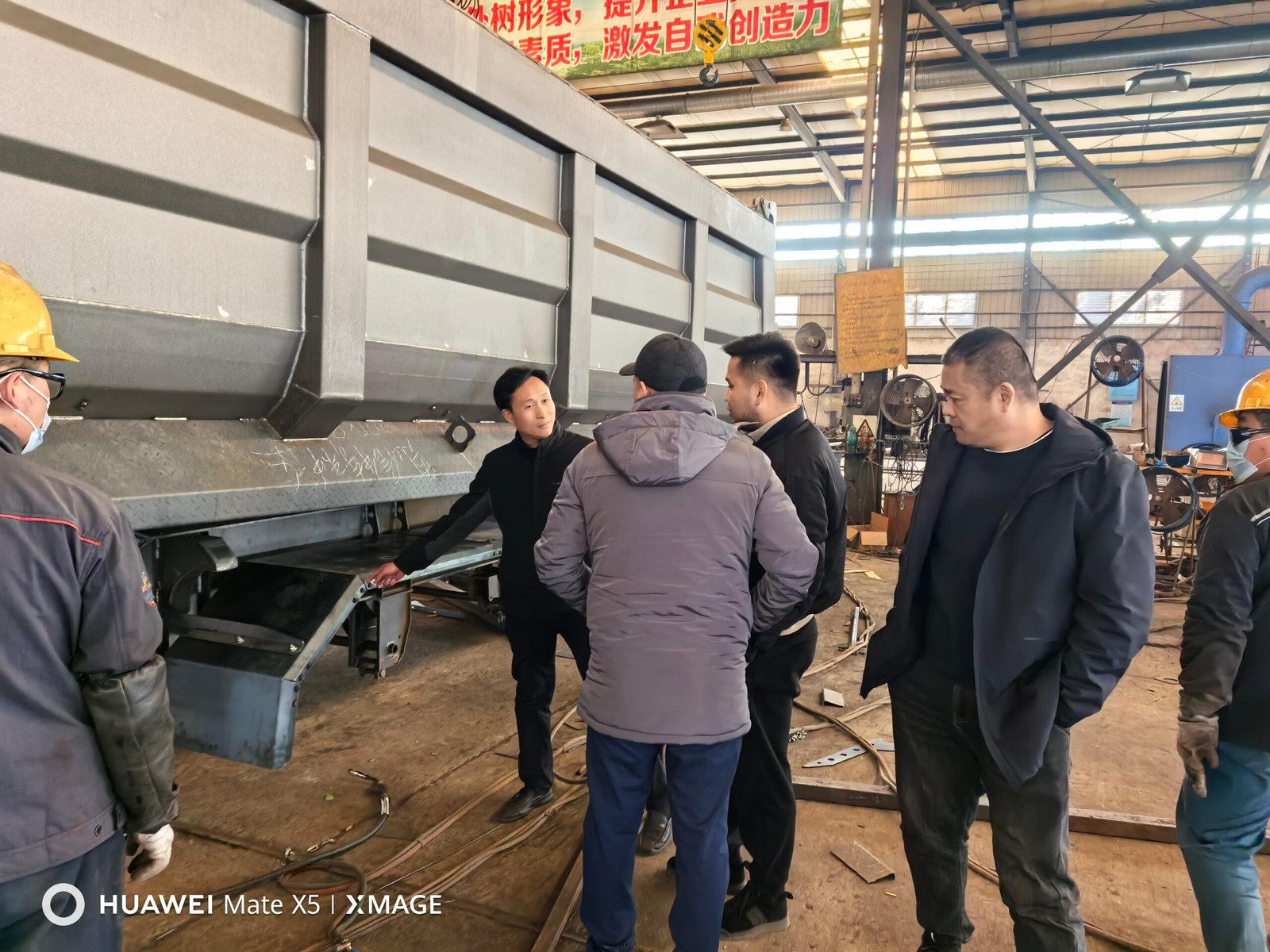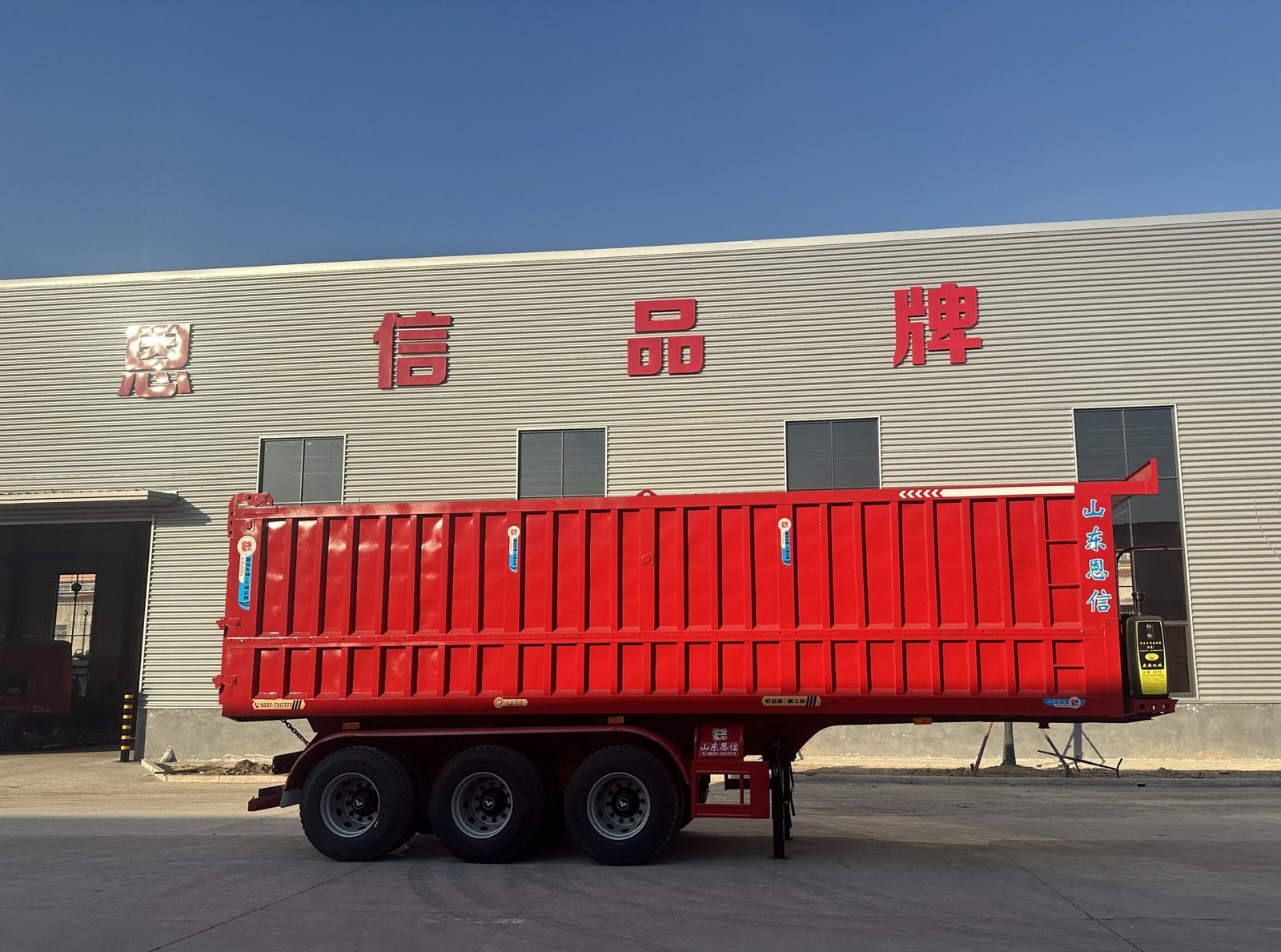Introduction
Semi trailers play a crucial role in the modern logistics and transportation industry. From heavy machinery to food distribution, the right type of semi trailer can improve efficiency, reduce operating costs, and ensure cargo safety. With the growth of international trade across Africa, Southeast Asia, the Middle East, and Europe, demand for durable and reliable semi trailers is increasing rapidly.
In this article, we will explore the Top 7 Semi Trailers for 2025, covering their features, applications, and benefits. Whether you are a logistics company, construction contractor, or fleet owner, this guide will help you choose the most suitable trailer for your business.
1. Flatbed Semi Trailer
The flatbed trailer is one of the most versatile and widely used trailer designs worldwide. With an open platform structure and no side walls, it accommodates a wide variety of cargo, from shipping containers to steel products and oversized equipment.
Technical Features:
Length options: 20ft, 40ft, and 53ft.
Payload capacity: 30–80 tons depending on axle configuration.
Material: High-strength steel for enhanced durability.
Applications:
Transportation of containers, pipes, timber, and machinery.
Ideal for regions where cranes or forklifts are commonly used for loading.
Advantages for Global Trade:
Flatbed trailers simplify multimodal transport and are particularly popular in **Africa and the Middle East**, where construction materials and heavy equipment are frequently transported over long distances.
2. Lowbed Semi Trailer (Lowboy Trailer)
Lowbed trailers are designed for heavy-duty cargo and oversized machinery. The lowered deck height allows for transporting tall or heavy equipment while maintaining road clearance.
Technical Features:
Deck height: 850–1200 mm, lower than standard trailers.
Payload: 40–120 tons depending on design.
Options: Hydraulic ramps or detachable goosenecks for easy loading.
Applications:
Excavators, bulldozers, cranes, wind turbine components, and industrial equipment.
Market Relevance:
In Africa and Southeast Asia, where mining and infrastructure projects are expanding, lowbed trailers for heavy equipment are indispensable.
3. Skeleton (Container) Semi Trailer
Also called skeletal trailers, these are purpose-built for container transportation.
Technical Features:
Configurations: 2-axle, 3-axle, or extendable frames.
Container compatibility: 20ft, 40ft, and 45ft ISO containers.
Lightweight design reduces fuel consumption.
Applications:
Port operations, shipping companies, inland depots.
Advantages:
Cost-effective for long-distance container haulage.
Easy maintenance, robust frame for rough roads in Nigeria, Kenya, and Tanzania.
4. Dump Semi Trailer (Tipper Trailer)
Dump trailers are equipped with hydraulic lifting systems for bulk cargo unloading.
Technical Features:
Payload: 30–80 tons.
Body design: U-shape or square box.
Hydraulic cylinder: High-strength with long service life.
Applications:
Sand, gravel, coal, stone, and agricultural products.
Market Advantage:
These trailers are highly in demand in West Africa’s mining and construction industry, where bulk materials must be moved efficiently and cost-effectively.
5. Tanker Semi Trailer
Tanker trailers are specialized for liquids, gases, or powders.
Types:
Fuel tankers (diesel, petrol).
Bulk cement tankers.
Chemical tankers with anti-corrosion linings.
Food-grade tankers (stainless steel for milk, oil).
Technical Features:
Multi-compartment designs available.
Safety systems: Anti-rollover structures, emergency valves.
Applications:
Fuel distribution networks in Nigeria and Ghana.
Bulk powder delivery for cement plants in the Middle East.
6. Side Wall and Fence Semi Trailer
These trailers are designed with detachable side walls or fences, allowing for more flexible loading.
Applications:
Bagged cement, agricultural produce, and livestock.
Versatile solution for mixed cargo transport.
Advantages:
Affordable investment for small to medium-sized logistics companies.
Adaptable to local road regulations in Africa and Asia.
7. Car Carrier Semi Trailer
Car carriers are specialized trailers for vehicle logistics.
Types:
Single-deck carriers (for passenger cars).
Double-deck carriers (for multiple vehicles, often up to 12).
Applications:
Used by auto distributors and exporters.
Growing demand in North Africa and Middle East automotive trade.


How to Choose the Right Semi Trailer for Your Business
Factors to Consider
Cargo Type – Determine whether you need to transport containers, heavy machinery, liquids, or perishable goods.
Load Capacity – Choose the right trailer based on the weight and volume of your cargo.
Road Conditions – Consider whether your operations involve highways, rough roads, or mining areas.
Regulations – Some countries, such as those in Europe, require CE or E-mark certification for trailers.
After-Sales Support – Choose a manufacturer that offers spare parts, technical guidance, and warranty services.
Conclusion
Semi trailers are an indispensable part of the global transportation industry. From flatbed trailers for general cargo to refrigerated trailers for cold chain logistics, each type of trailer plays a unique role in ensuring smooth, safe, and cost-effective transport.
By understanding the Top 7 Semi Trailers and their applications, you can make a smarter decision for your logistics fleet or construction projects. For businesses looking to expand internationally, investing in the right semi trailer will provide long-term benefits and higher efficiency.
Contact Enxin today for a detailed catalog and the latest semi trailer price.


